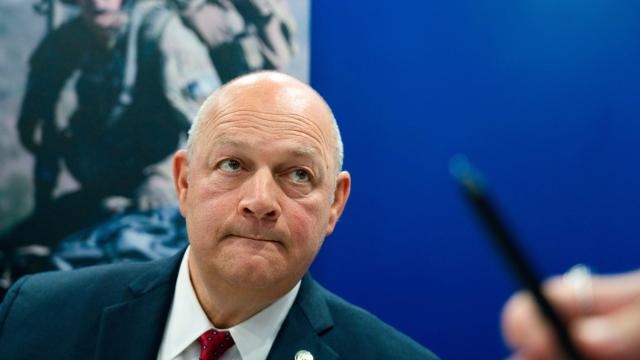The U.S. Federal Aviation Administration was well aware of the fatal hazards with the Boeing 737 MAX before the March 2019 Ethiopian Airlines crash and allowed the planes to continue carrying passengers, a report shows. As the Wall Street Journal notes, the FAA had estimated that throughout its 30-45 year life cycle, the Boeing 737 MAX would have crashed roughly as many times as “all fatal passenger accidents over the previous three decades.”
Thursday, the U.S. House Transportation Committee released the results of a November 2018 FAA investigation, following the October 2018 Lion Air crash which killed 189 people. The FAA projected that Boeing 737 MAX planes would crash 15 times, or, once every two to three years. The report includes the even more horrifying line item: “total uncorrected fatalities: 2920.9.”
As U.S. Transportation Committee Chair Peter DeFazio (D-OR) noted in an oversight hearing today, that was an optimistic estimate. “[The estimate] was assuming that 99 out of 100 flight crews could comply with the airworthiness directive and successfully react to the cacophony of alarms and alerts recounted in the National Transportation Safety Board’s report on the Lion Air tragedy within 10 seconds,” he said.
The Ethiopian Airlines crash would leave 157 people dead before aviation officials around the world grounded the planes.
As the Wall Street Journal first reported, the FAA had operated under the assumption that Boeing would fix the faulty MCAS stall prevention software under FAA oversight, which is still in progress. As a temporary remedy, the FAA would instruct flight crews on how to respond to a software failure. Boeing and the FAA still plan to relaunch the 737 MAX.
At today’s hearing, attended by some of the victims’ families, FAA Administrator Stephen Dickson testified that the FAA “is not delegating anything to Boeing” in the approvals process. Previous reporting has uncovered that the FAA sloughed off its responsibilities to Boeing employees who had approved various elements of the plane as it was being produced and that the FAA never fully evaluated the deadly MCAS software.
The New York Times has reported that Boeing even co-wrote a 2018 law signed off by Donald Trump, which in effect put the safety approvals process in the hands of airline companies. A whistleblower has told the committee that Boeing even puts its boot on FAA managers’ throats, pressuring them to overrule their own safety experts.
In October, Boeing’s CEO Dennis Muilenburg, who apologised to victims’ families only after public pressure, testified that he was made aware of alarms bells before the second crash. In 2016, before the 737 MAX went on the market, a pilot who’d helped develop the plane had told a colleague that the MCAS system was “running rampant” in the flight simulator. In 2017, the same pilot had warned the FAA via email to “delete MCAS,” writing that the software was “way outside the normal operating envelope.”
DeFazio stated that the committee and staff are still reviewing half a million pages of documents from the FAA.
In an alarming statement to Gizmodo, Boeing maintained that they were just following established protocol and that its “existing procedures through issuance of an Operations Manual Bulletin and Airworthiness Directive”–issuing a manual to instruct flight crews on how to mitigate a catastrophic software failure–had “sufficed to allow continued operation of the MAX fleet until changes to the MCAS software could be implemented.”
“The actions that Boeing and the FAA took, including the issuance of the Operations Manual Bulletin and Airworthiness Directive and the timeline for implementing the MCAS enhancements, were fully consistent with the FAA’s analysis and established process,” they stated.
When reached for comment, an FAA spokesperson told Gizmodo:
The FAA is following a thorough process, not a prescribed timeline, for returning the Boeing 737 MAX to passenger service. The FAA’s certification of the Boeing 737 MAX is the subject of several independent reviews and investigations that will examine all aspects of the five-year effort.
In the hearing today, Dickson told the committee that the FAA’s protocol itself is fine. “The system is not broken,” he said.
